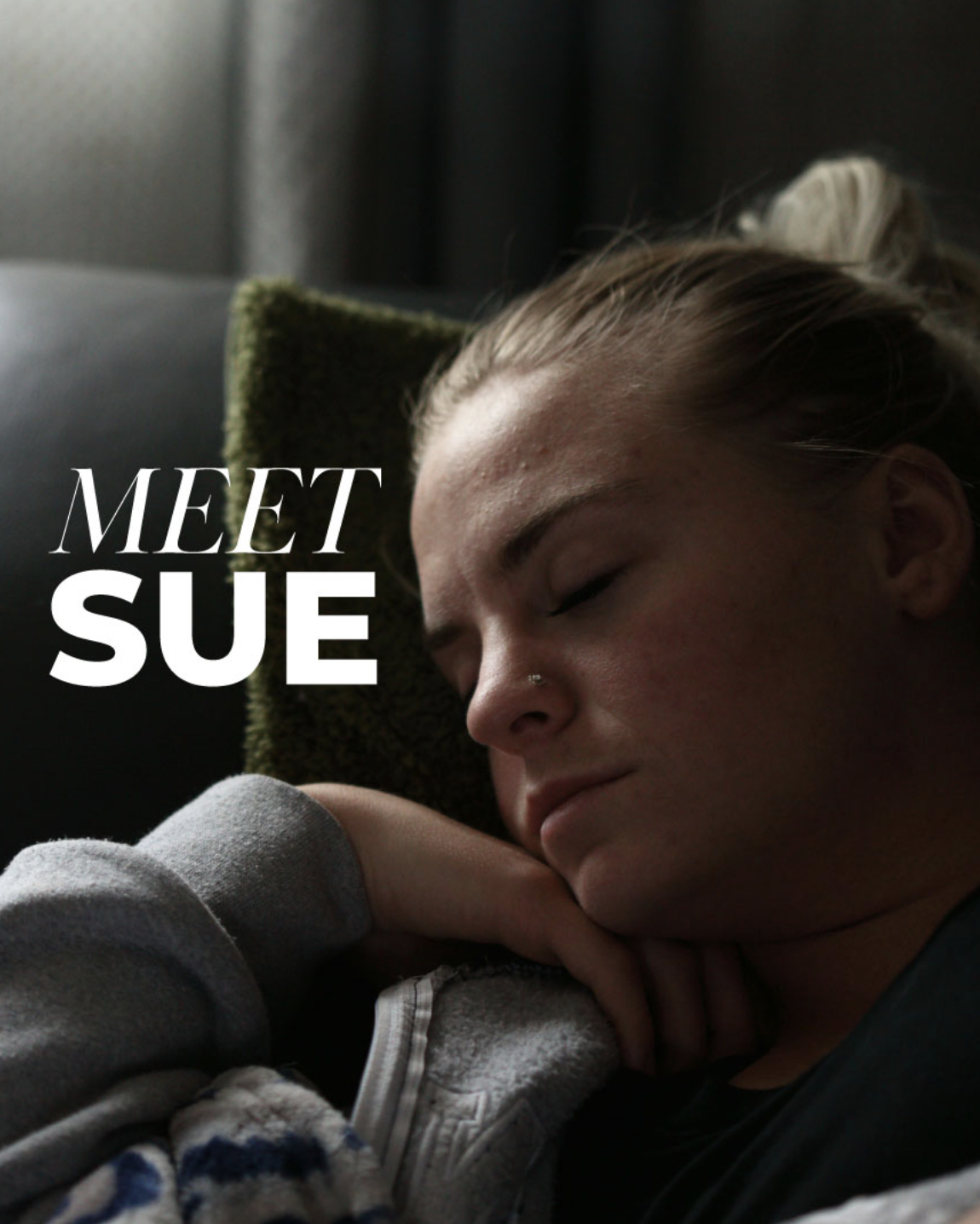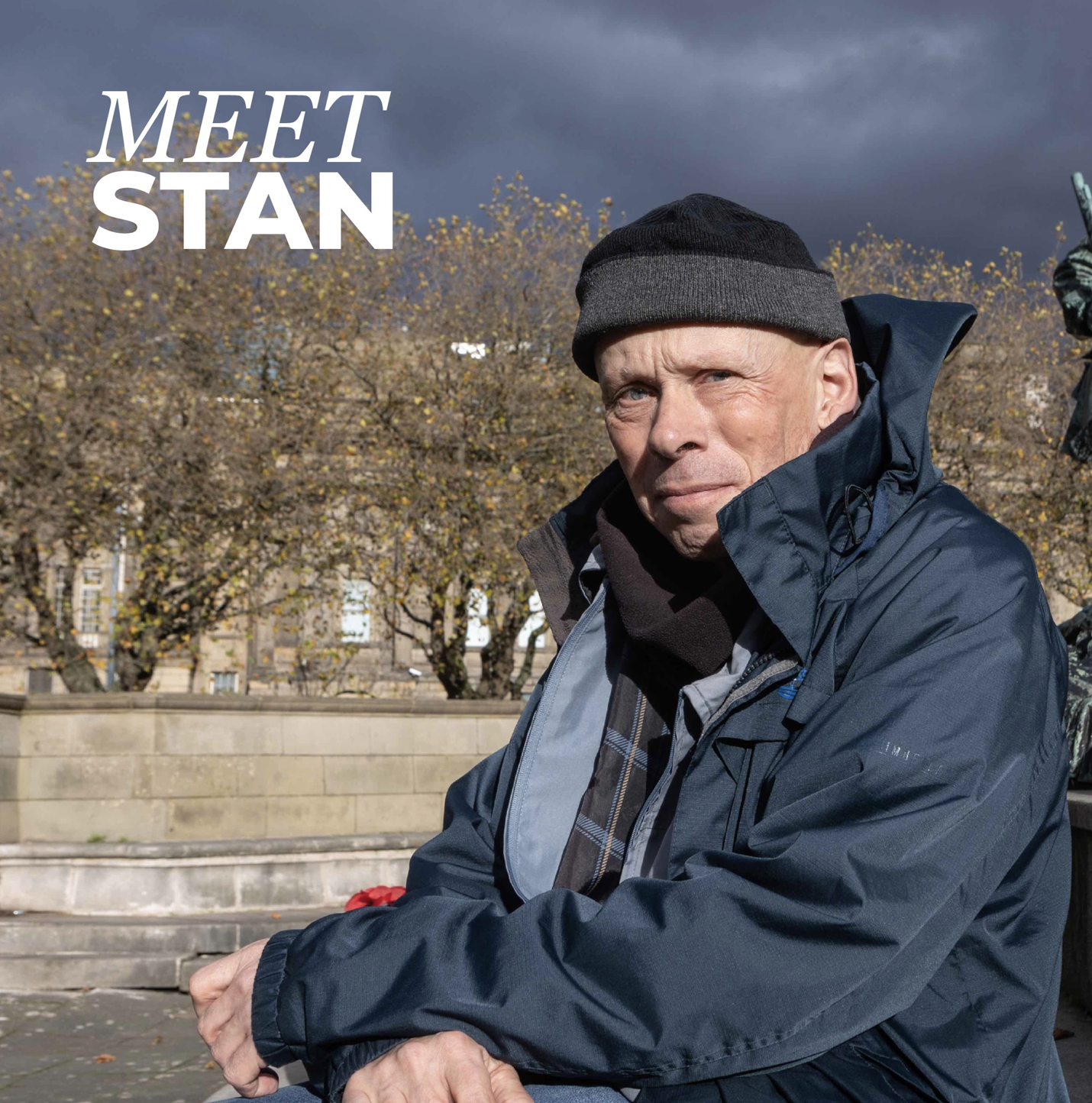Jeff Hubbard/PA Wire/Centre for Homelessness Impact
Together, we’re helping people facing homelessness. Hear their stories.
This winter we are focused on collective action to provide warm safe housing, warm food, and warm clothing and material aid to those without a place to call home. We know these are the basic needs that families and individuals are struggling to access as they navigate homelessness in tents, couches, cars, on street corners, and unsafe temporary accommodation.
Grassroots homelessness services are needing extra support to care for the new faces coming through the door including families with young kids, people with jobs, young people on youth allowance, children alone who are escaping unsafe homes, older women living in their cars.
Homelessness is diverse, and listening to the stories of those experiencing it helps us to connect with the person rather than the statistic. These stories below unpack the various drivers of homelessness, the day to day challenges of experiencing it, and how help is sought.
They are a general representation of many people who have faced and experienced homelessness, and who our support has helped bring about change for.
19 year old Sue has been couch surfing at friends’ places since leaving her home due to a family breakdown.

Things at home had been tense for a while and Sue had been increasingly feeling anxious and unsafe around her parents. When a disagreement suddenly turned physical one day, Sue decided to leave to keep herself safe. Couch surfing was only meant to be temporary but her youth allowance has left Sue with no affordable rental options.
.
Not wanting to be a burden on anyone, Sue moves around every few days and is beginning to feel like she has exhausted all her close networks. Increasingly, she is staying in homes she’s unfamiliar with. This feels scary and Sue knows she’s at risk of exploitation and abuse but feels she has no other choice. It seems like a better option than sleeping rough on the streets as winter approaches.
.
Sue has been dropping into a local service for hygiene essentials and basic needs. Here she can charge her phone between houses, get a toiletries pack, and find some warmer clothes as she left her home with only a few belongings.
.
Her local hub is one of the few resources Sue has available to her right now, and without it’s support Sue would be increasingly vulnerable and isolated.
Sudden unemployment left him facing homelessness. Struggling with his mental health, Stan found it nearly impossible to find suitable employment again and started to get behind on bills and rent. Without an adequate income, Stan has no choice but to leave his home and for a while, found shelter at various boarding houses. However these were unsafe, and Stan found himself forced to sleep in sheltered corners of the CBD.
Sleeping rough for extended periods of time has had a traumatic effect on Stan’s health. The loneliness, fear, uncertainty, and stress has exacerbated his mental health challenges. Stan finds sleeping rough to be both incredibly isolating and exhausting. Passerbys find his presence uncomfortable, and hours might go by on a busy street without anyone catching his eye or acknowledging his humanity. With safety, shelter, food, and water on the priority list, Stan has little capacity to navigate the complex housing or health systems to find the support he needs.
.
At dawn as frost covers the parks or in the middle of the night as wind and rain refuse to ease, life is cold and almost unbearable. Heading into winter Stan needs a swag and waterproof clothing to keep dry and warm. For Stan, this kind of help is an essential start in the journey through tough times and provides a platform for other care and support.
Stan, 42, has been sleeping rough for the past year in the CBD.

Photo: Centre for Homelessness Impact
Mala is a renter and has seen the rent increase by 20% this year. Although Mala has a full time job and regular hours, they feel like this is no longer a real defence against homelessness. Currently, Mala is using over 50% of their income on rent, with little left over for basic essentials. Mala has looked at other rentals available but with 20-30 people attending inspections, they know their chances of finding somewhere else are slim.
.
To cope, Mala has been cooking less to reduce their gas bill, and limiting the purchase of fresh vegetables and meat to save money. With the majority of their paycheck being used to keep a roof over their head, Mala has begun skipping their prescription medication and has had to forego car registration this year to keep making rental payments.
.
Mala feels like they are one expense, one electricity bill away from homelessness. They need help to pay the bills and stay housed. Tenancy support organisations help ease the pressure on families and people living on the margins. Financial guidance and bill support would mean that Mala can have capacity to catch-up, focus on paying rent and stay housed.
Mala, 35, is employed but with recent rent rises and living expenses, is facing homelessness.

After a marriage breakdown, Louise moved into her car and has been living out of it ever since.

Separating from her long-term partner left Louise financially unstable and in a precarious position. Unable to keep her home, she packed what she could into her car. For a while she parked near her children’s home to access their bathroom and kitchen but with 3 grandchildren, their house was crowded and finances tight.
Louise began staying in car parks near public toilets and beach shower blocks. Each day is a logistical feat, filled with the mental and emotional stress of meeting basic hygiene and food needs without access to a kitchen, bathroom, and laundry of her own. Louise is often awoken during night, frozen in fear as people bang on her window and shout at her.
.
Needing to be always on the move, Louise has become disconnected from friends and family. Louise longs to have a home where she can invite her grandkids round after school and cook their favourite meals again. Right now though, Louise is going hungry nearly every day to save money for fuel.
A community lunch is often the only time Louise has a hot meal and a safe space to relax and feel a bit less lonely as she chats with volunteers and other locals.
After a few stressful months of searching and applying for any remotely viable rental, the young parents turned to a tent as their last resort. Even the caravan park was full.
Dana and Ali are trying to keep life as normal as possible for their kids who are still in primary school. Reading by torchlight before bedtime and walking over to the public toilets to brush their teeth is manageable for now but with winter approaching, daily life is becoming more of a struggle. Rain and frost make the tent damp and sickness more likely.
There is constant stress about money for school supplies, food for lunchboxes, petrol for the car. The couple feel frustrated at the lack of options for an affordable home in which to raise their family.
With no long term rentals or solutions in sight the family are losing hope, yet Dana and Ali both still hold down their jobs despite their current housing instability.
This young family needs access to crisis accommodation for respite and connection to support services.
Dana, Ali and their two young kids were given notice to vacate their long term rental and have struggled to find an affordable alternative.









